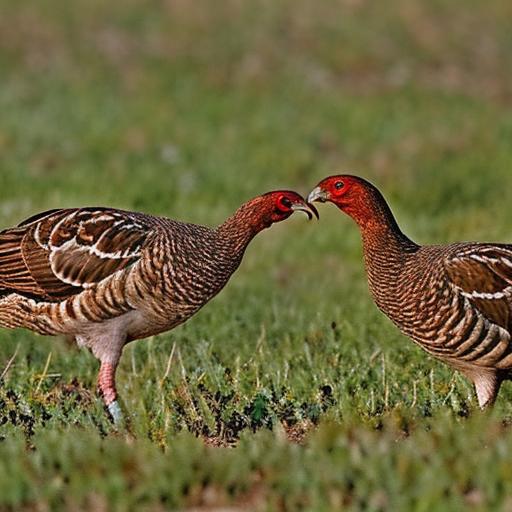When it comes to choosing the right breed of dog, there are several factors to consider. First and foremost, it’s important to think about your lifestyle and what type of dog would best fit into it. For example, if you live in a small apartment and don’t have a lot of time for exercise, a smaller, low-energy breed like a Chihuahua or a Pug might be a better fit for you. On the other hand, if you have a large yard and enjoy outdoor activities, a more active breed like a Labrador Retriever or a Border Collie might be a better match.
Another important consideration when choosing a breed is the amount of grooming and maintenance they require. Some breeds have long, luxurious coats that require regular brushing and grooming, while others have short, low-maintenance coats. If you don’t have the time or resources to devote to grooming, it’s important to choose a breed that fits your lifestyle in this regard as well. Additionally, it’s important to consider any breed-specific health issues that may be associated with certain breeds. For example, some breeds are prone to hip dysplasia or heart problems, so it’s important to be aware of these potential issues and be prepared to provide the necessary care and attention if you choose a breed that is predisposed to certain health problems.
In conclusion, when choosing the right breed of dog, it’s important to consider your lifestyle, the amount of grooming and maintenance you can provide, and any potential health issues associated with specific breeds. By taking these factors into consideration, you can ensure that you choose a breed that will be a good fit for you and your family.
Key Takeaways
- When choosing a breed, consider your lifestyle and living situation to find a dog that fits your needs and energy level.
- Health and genetics play a crucial role in the overall well-being of your dog, so be sure to research potential health issues within specific breeds.
- Temperament is an important factor to consider when choosing a dog, as it can impact how well they fit into your family dynamic.
- Physical characteristics such as size, coat type, and exercise needs should be taken into account when selecting a breed that aligns with your preferences.
- Understanding the fertility and reproductive needs of your chosen breed is important if you plan to breed or spay/neuter your dog.
Health and Genetics
The health and genetics of a dog are crucial factors to consider when choosing a breed. It’s important to research the potential health issues associated with different breeds and be prepared to provide the necessary care and attention if you choose a breed that is predisposed to certain health problems. Additionally, it’s important to choose a reputable breeder who prioritizes the health and well-being of their dogs and takes steps to minimize the risk of genetic health issues in their breeding program.
Genetic testing can also be a valuable tool in assessing the health and genetics of a potential dog. Many responsible breeders will conduct genetic testing on their breeding dogs to screen for potential genetic health issues and ensure that they are not passing on any hereditary conditions to their offspring. By choosing a breeder who conducts genetic testing and prioritizes the health of their dogs, you can help minimize the risk of inheriting genetic health issues in your new pet.
In conclusion, the health and genetics of a dog are important factors to consider when choosing a breed. By researching potential health issues associated with different breeds, choosing a reputable breeder who prioritizes the health of their dogs, and considering genetic testing, you can help ensure that you choose a breed that is healthy and well-suited to your lifestyle.
Temperament
The temperament of a dog is another important factor to consider when choosing a breed. Different breeds have different temperaments, and it’s important to choose a breed that matches your personality and lifestyle. For example, some breeds are known for being outgoing and friendly, while others are more reserved and independent. It’s important to consider what type of temperament would be the best fit for you and your family.
Additionally, it’s important to consider the energy level of different breeds when assessing their temperament. Some breeds are high-energy and require a lot of exercise and mental stimulation, while others are more laid-back and easygoing. It’s important to choose a breed with an energy level that matches your own and that you can provide for in terms of exercise and activity.
In conclusion, the temperament of a dog is an important factor to consider when choosing a breed. By considering the personality traits and energy level of different breeds, you can ensure that you choose a breed that is well-suited to your lifestyle and will be a good fit for you and your family.
Physical Characteristics
The physical characteristics of a dog are another important consideration when choosing a breed. Different breeds come in all shapes and sizes, from tiny Chihuahuas to massive Great Danes, and it’s important to choose a breed that fits into your lifestyle in terms of size and physical characteristics. For example, if you live in a small apartment, a large breed might not be the best fit for you, while if you have a large yard and enjoy outdoor activities, a larger breed might be more suitable.
Additionally, it’s important to consider any breed-specific grooming needs when assessing physical characteristics. Some breeds have long, luxurious coats that require regular brushing and grooming, while others have short, low-maintenance coats. It’s important to choose a breed with grooming needs that match your lifestyle and resources.
In conclusion, the physical characteristics of a dog are an important factor to consider when choosing a breed. By considering the size and grooming needs of different breeds, you can ensure that you choose a breed that fits into your lifestyle and will be a good fit for you and your family.
Fertility and Reproduction
When it comes to fertility and reproduction in dogs, there are several important factors to consider. First and foremost, it’s important to spay or neuter your dog if you do not plan on breeding them. This not only helps control the pet population but also has health benefits for your dog, such as reducing the risk of certain cancers and behavioral issues.
If you do plan on breeding your dog, it’s important to do so responsibly. This means ensuring that both the male and female dogs are healthy and free from any genetic health issues that could be passed on to their offspring. It also means being prepared to provide proper care for the mother during pregnancy and for the puppies after they are born.
In conclusion, when it comes to fertility and reproduction in dogs, it’s important to spay or neuter your pet if you do not plan on breeding them. If you do plan on breeding your dog, it’s important to do so responsibly by ensuring the health of both parents and being prepared to provide proper care for the mother during pregnancy and for the puppies after they are born.
Nutritional Needs

The nutritional needs of a dog are crucial for their overall health and well-being. Different breeds may have different dietary requirements based on their size, energy level, and any specific health issues they may be prone to. It’s important to choose a high-quality dog food that is appropriate for your dog’s age, size, and activity level.
Additionally, it’s important to monitor your dog’s weight and adjust their food intake as needed to maintain a healthy weight. Overfeeding can lead to obesity and related health issues, while underfeeding can lead to malnutrition and other health problems.
In conclusion, the nutritional needs of a dog are crucial for their overall health and well-being. By choosing a high-quality dog food that is appropriate for your dog’s age, size, and activity level, monitoring their weight, and adjusting their food intake as needed, you can help ensure that your dog receives the proper nutrition they need to thrive.
Housing and Environment
The housing and environment in which a dog lives are important factors in their overall well-being. It’s important to provide a safe and comfortable living space for your dog, whether that be in a house with a fenced yard or in an apartment with access to outdoor areas for exercise.
Additionally, it’s important to provide mental stimulation for your dog by providing toys, puzzles, and interactive playtime. Dogs thrive on mental stimulation as well as physical exercise, so it’s important to provide opportunities for both.
In conclusion, the housing and environment in which a dog lives are important factors in their overall well-being. By providing a safe and comfortable living space with access to outdoor areas for exercise and mental stimulation through toys and interactive playtime, you can help ensure that your dog has everything they need to thrive in their environment.
When considering what to look for in a breeding turkey, it’s important to also think about the housing and environment they will need. A well-designed chicken coop can provide the ideal space for turkeys to thrive and breed. If you’re looking for inspiration on how to create a suitable environment for your turkeys, you may find the article “Large Chicken Coop Ideas” on PoultryWizard.com helpful. This article offers valuable insights and practical tips on creating a spacious and comfortable living space for poultry, which can be easily adapted for breeding turkeys. Check it out here.
FAQs
What should I look for in a breeding turkey?
When looking for a breeding turkey, it’s important to consider the bird’s overall health, size, and temperament. Look for turkeys that are free from any signs of illness or disease, have a good body conformation, and display a calm and friendly demeanor.
What are some important traits to consider in a breeding turkey?
Some important traits to consider in a breeding turkey include good body conformation, strong and healthy legs, a well-developed breast, and a calm and friendly temperament. Additionally, consider the turkey’s ability to reproduce and raise healthy offspring.
How can I assess the health of a breeding turkey?
To assess the health of a breeding turkey, look for clear and bright eyes, clean and smooth feathers, a well-rounded body shape, and active behavior. Additionally, check for any signs of illness or injury, such as limping or abnormal breathing.
What role does temperament play in breeding turkeys?
Temperament plays an important role in breeding turkeys as it can affect the bird’s ability to reproduce and raise offspring. Look for turkeys with a calm and friendly temperament, as they are more likely to be successful breeders and good parents.
Why is body conformation important in a breeding turkey?
Body conformation is important in a breeding turkey as it can affect the bird’s overall health, reproductive capabilities, and ability to raise offspring. Look for turkeys with a well-proportioned body, strong legs, and a well-developed breast for optimal breeding potential.
Meet Walter, the feathered-friend fanatic of Florida! Nestled in the sunshine state, Walter struts through life with his feathered companions, clucking his way to happiness. With a coop that’s fancier than a five-star hotel, he’s the Don Juan of the chicken world. When he’s not teaching his hens to do the cha-cha, you’ll find him in a heated debate with his prized rooster, Sir Clucks-a-Lot. Walter’s poultry passion is no yolk; he’s the sunny-side-up guy you never knew you needed in your flock of friends!







